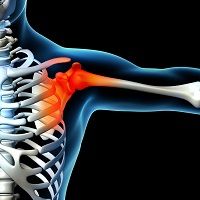Article
Rheumatoid Arthritis Guidelines Should Include Rehabilitation Details
Author(s):
The new disease management program publication from the Institute for Quality and Efficiency in Health Care states that drug therapy is an important focus of rehabilitation for rheumatoid arthritis patients.

The new disease management program (DMP) publication from the Institute for Quality and Efficiency in Health Care (IQWiG) states that drug therapy is an important focus of rehabilitation for rheumatoid arthritis (RA) patients.
The German institution published the results of their search for evidence based guidelines on the treatment of people with RA. Their report was aimed at identifying the recommendations from current guidelines which were soundly created and could be put forth in a new DMP.
Of 18 guidelines included in the analysis, four address several health care aspects such as diagnostics, non drug therapies and cross sector healthcare. Most importantly, the researchers found that rehabilitation measures were only sporadically addressed. Those that did cover rehabilitation suggested non drug treatment therapy procedures such as physiotherapy and ergotherapy for functional limitations, ortheses for pain relief or diet changes for better overall patient health. The researchers suggest that rehabilitation is a key component of DMP for RA patients.
The researchers also reported that some of the guidelines were developed outside of Germany, where the review took place (two studies). Thus, some of the studies were inapplicable to the locale’s health care system, most specifically in nursing care aspects. Six of the guidelines (from the United Kingdom) detailed COPD patients in the care of “clinical nurse specialists.” The researchers explained that in countries outside of Germany, nurses undergo specific academic qualifications and take on greater responsibilities.
The preliminary findings were published by IQWiG in October 2015, and at that point, interested parties were invited to submit comments, a press release explained. The report and comments were then sent to the Federal Joint Committee in March of this year. Afterward, the recommendations and comments were published (though in separate documents). The overall guidelines were produced in collaboration with external experts, the statement added.





